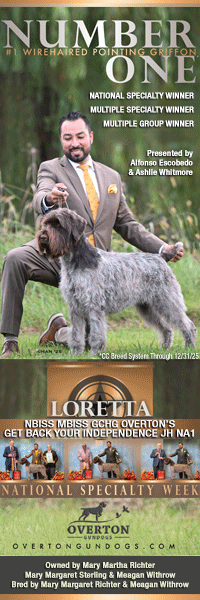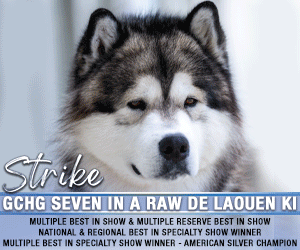He Said, She Said
by Ariel Woodruff

A few months ago I was preparing to fly out to Burlington, Vermont, where I would spend two weeks attending lectures and readings with other writers, participating in workshops, discussing literature, and finally presenting a lecture of my own: “Strategies for Crawling Inside the Animal Character.” I had put in a great deal of research, plumbed my own life experiences and those of other writers in order to create a talk that I believed would be genuinely useful to the fiction writer in search of ways to craft an authentic, believable animal character. Speech prepared and practiced, writing exercises planned, video examples selected, I only had a few last-minute details to sort out: which suit should I wear? Did I want to wear heels for forty-five minutes at the podium, or would flats be a better choice? Was I leaving enough time for questions? I worried over the little things.

Then disaster struck. A week before my flight, I came down with a virus so virulent, my fevered brain began to wonder if those persistent “zombie apocalypse” rumors might have something to them. I was flat on my back, weak as a kitten, barely able to eat or sleep, hardly able to string a sentence together. Getting on a plane was unthinkable. Days slipped by and I failed to improve, forcing me to change my flights twice. As the residency started without me, I called one of my classmates and relayed the facts of my illness so that faculty and peers would be abreast of the situation.
Or so I thought.
Two days into the residency, I had recovered enough to fly in, and my dear friend picked me up at the airport. The first words out of her mouth were, “I have something to tell you…and you probably won’t like it. You might have to explain to everyone that you weren’t attacked by a chimpanzee.”
What?!
It turns out that when I had discussed the virus with her over the phone, she had misheard me. It was my understanding that the illness affected, “mostly only children.” She had heard “only chimps.” Horrified, and conscientious of my exhaustion and delirium, she hadn’t pressed me for details, but had spoken with other friends. They remembered that my sister worked as a zookeeper and posited that I had been exposed to the virus through her. As worried classmates pressed for news, the story began to mutate: I had been attacked while doing research. My case was the first of its kind. The American government wasn’t letting me fly. My immune system had always been weak, and now I was fighting for my life.

Wow, what a game of telephone!
Things worked out well for me. The story only engendered more interest in my lecture, got people talking and laughing, and I was able to clear it up nicely. But it also got me thinking. Here is a case where a little bit of talk, of gossip, had turned something relatively benign into an absolutely insane story. There were no egos involved, no personal gains to be made by spreading the tale, no negative intentions. It was a simple mistake, an honest one.
Now think of the damage that can be done, in a community like ours, a sport like ours, when that isn’t always the case. There probably is not a single one of us who can say we have avoided gossip entirely; whether we’ve spread it ourselves or heard it, whether we have been affected by it or choose to believe that we have avoided its stain. Regardless, it is our breeds that suffer for its existence.
Once, gossip might have been considered a harmless, petty little diversion (though I doubt that is the way anyone affected felt about it); maybe a few people heard stories about this dog or that breeder, maybe it spread through one or two circles, but eventually it died out as less and less people knew of the involved parties, had means or time to contact each other, or had reason to care. Now we have text messages, emails, Twitter, and Facebook. Don’t know who someone is? Look them up! See how they are connected to so-and-so, and to yourself, in mere seconds. Suddenly the story seems rather relevant to you, doesn’t it? Suddenly it seems as if you should have a say. In a few more seconds, draft your opinion and send it out into the world.
It used to be that you had to take the time to think about what you were going to say and whether it was worthwhile, pertinent, or correct. If you were going to mail your thoughts to someone, to have a meaningful conversation in person, did you really want to waste your time or someone else’s by engaging and trading in the thoughtless and untrue? Now information is at our fingertips faster than we can blink. That information is not always right.

Lately, in two of the breed communities that I am primarily involved in, gossip rages. I have heard tales and barbs traded. Tempers have flared. People stop talking to each other. Others talk behind each other’s backs. In this sort of climate, who will feel comfortable sharing genuinely useful information that will impact breeding decisions and, in the long run, the directions that breeds go in? Rather than widening the circle of information, or creating a dialogue that will ensure pertinent facts are traded, gossip shuts everything down. In all of it, I begin to feel that no one is really thinking of the dogs, but of themselves.
When we begin to look at information as weaponry, as insurance against “the other side,” we are hurting the sport more than we are hurting the other party. After all, what other party are we talking about? People who love the same breed we love. People who dedicate time, money, and effort, just like we do, into preserving and protecting the same animal, even if they do not do so in the exact way we do. We have a common ground. Let us start there.
So, when it comes to speaking of dogs, I keep in mind three simple rules that likely all of us know from childhood. Here they are gently expanded upon:

1. Is it true?
Not, “I’m pretty sure it’s true,” or “so-and-so would never lie, and he told me, so it must be true.” Were you there? Were you one of the parties involved in the event? If you were a witness, were you in a position to have all of the facts, or might you have missed something? Is it possible to confirm by handling or interacting with a dog yourself, and have you done so? Is what you are about to share actual fact, or is it a strongly held opinion?
2. Is it kind?
Here I am not suggesting that we all sugar-coat our words, or say only “nice” things about each other or each other’s dogs; in the end, that is as disingenuous and as harmful to open communication as is gossip. What I am suggesting is that we examine our intention and particularly, the way in which we present and share opinions and knowledge.
Why are we sharing this information? If we honestly examine our own motivations, are they doing a favor to our breed or merely to ourselves? If we feel, deep down, a delicious little kernel of naughtiness as we open our mouths, should we think twice before finishing that sentence?
What words do we use and how do we use them? Are they loaded or are they informative? There is a tendency among us, I have noticed, to say things like, “I just tell it like it is.” While this is not inherently a bad thing, how many times has such a sentence been followed by an invective? If the goal is to be instructive, we do well to remember that putting someone on the offensive is an excellent way to ensure that they shut their ears to what we are saying, to convince the other party that what we are is jealous, petty or kennel blind. Even honest opinions sound like gossip if the speaker’s diction is not carefully chosen, if the words are not measured, if they are flavored with angry passion and frustration, rather than dedicated passion, and genuine desire to further communication.

3. Is it necessary?
With the previous two criteria in mind, consider if the breed will suffer if this information is not spread? Will prospective puppy owners suffer? Will individual dogs? Is this something everyone needs to know, or is it something we personally “need” others to know, because it will make us feel better, stroke our ego, further perceived goals that really only matter to us? In other words, will the spreading of this information serve the breed community, or is it self-serving at best?
If all three criteria can be fully and honestly satisfied, perhaps it is right to share the information at hand. Perhaps it is not gossip. If that is the case, then there is a fourth and final step to take, particular to us dog owners. Take some time out to work with your dogs. Engage in honest, real communication with them. Remind yourself of what it feels like to have that kind of connection with another living being, and why it is you do what you do. If it is important, if it is real, the information you have to share will keep.
Short URL: https://caninechronicle.com/?p=20399
Comments are closed











